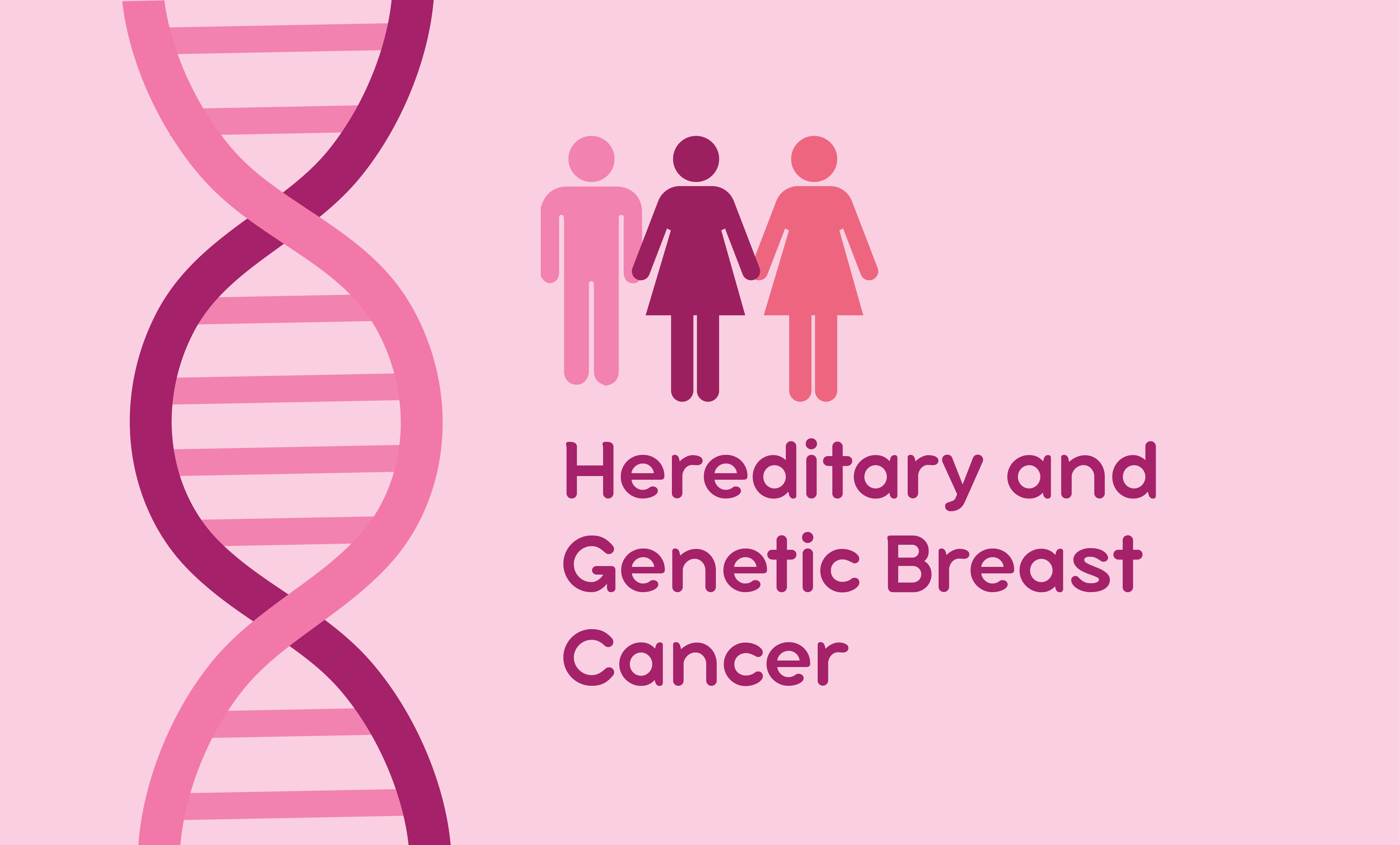
Cancer that runs in families is known as hereditary cancer, and it is brought on by changes made to specific genes that you acquired from your mother or father.
Genes are thought of as a blueprint manual that contains instructions on how to create and maintain body cells. Humans inherit their genes in two different ways: one set comes from their mother, and the other comes from their father. Blood type, hair color, eye color, and risk of contracting particular diseases are just a few examples of qualities that are handed on from parents to their offspring through DNA, which is the main component of genes.
BRCA 1 and BRCA 2 are two key fighters in the war against cancer. These genes are known as tumor suppressors because they prevent breast, ovarian, and other types of cells from developing and dividing too quickly or uncontrollably when they are functioning properly. Any change or mutation in any of the aforementioned genes impairs this normal function.
Every woman possesses the BRCA 1 and BRCA 2 genes, but only a small percentage of them have mutations. If one of your parents carries the BRCA 1 or BRCA 2 gene mutation, your risk of developing breast cancer or ovarian cancer increases.
Although not every woman with a BRCA 1 or BRCA 2 gene mutation will get breast or ovarian cancer, having one of these mutations also doesn't make you less likely to have these diseases.
According to statistics, 30 out of 100 women will develop ovarian cancer by the time they are 70 years old, and 50 out of 100 women with BRCA gene mutations are likely to develop breast cancer at this time.
How are these mutations going to be found in a woman? Genetic testing provides the solution. BRCA 1 and BRCA 2 gene mutations are searched for during genetic testing for hereditary breast cancer. The next crucial step after genetic testing is genetic counseling, which is essential enough to comprehend test results and inform subsequent actions.
The BRCA gene test is a blood examination that utilizes DNA analysis to find problematic variations (mutations) in either of the two genes that increase the risk of developing breast cancer, BRCA1 or BRCA2. Anyone with a personal or family history of breast cancer or ovarian cancer is advised to get their BRCA gene tested.
There might be further genetic tests to take into account, though. Based on your personal and family history, a genetic counselor can assist you in deciding what additional genetic testing options could be available.
Those who have inherited a risky BRCA1 or BRCA2 variation have a number of alternatives for lowering their risk of developing cancer. These include improved screening, chemoprevention, and risk-reducing surgery (also known as prophylactic surgery).
Breast cancers with detrimental BRCA1 variations are more likely to be "triple-negative cancers" (that is, the breast cancer cells do not exhibit estrogen receptors, progesterone receptors, or significant quantities of HER2/neu protein) than unpredictable breast cancers or breast cancers with damaging BRCA2 variants. Compared to other kinds of breast cancer, triple-negative malignancies are more difficult to treat and have a worse prognosis.